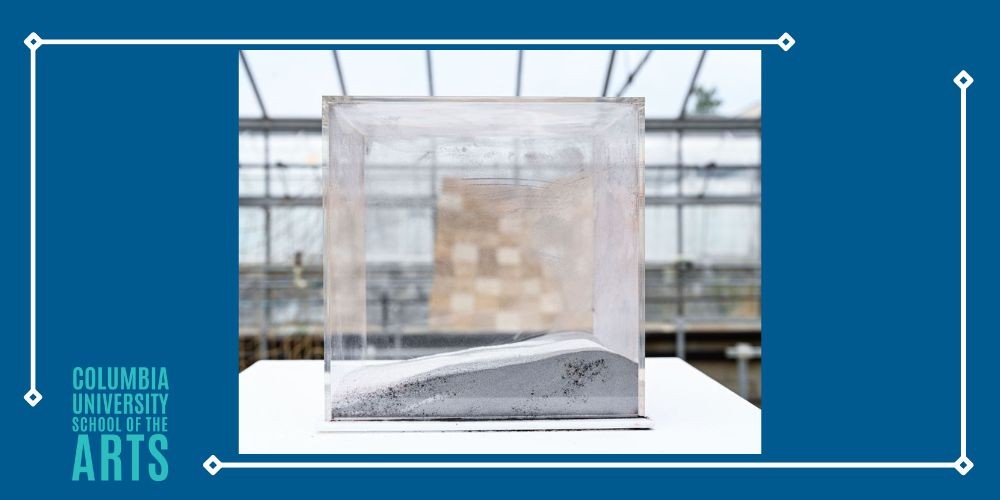Sound Art Alumnus Kamari Carter ’19 Presents Work at University of Rhode Island
Sound Art alumnus Kamari Carter ’18 recently presented I know I’ve hurt you, I’m sorry, (2022), an installation art piece at the University of Rhode Island as part of the exhibition, Just Good Food, which is sponsored by the College of the Environment and Life Sciences and draws focus to the social impacts of food systems, both locally and nationally.
A subset of that exhibition, Some Food We Could Not Eat, in which Carter is presenting work, complicates and expands the broader themes of food systems to explore the underbelly of systems at large.
As the project’s press release explains, “Carter began by thinking about food in terms of tradition and culture and considering ways to present it in a more abstract way, representing the body as a temple.” From this, Carter incorporated sculpture and sound to create “an acrylic cube display that is soothing to look at — until you realize that the cube is filled with 304 packets of grape powder, a serialized representation of the Peoples Temple agricultural project in Guyana and its infamous ending in 1978 when members committed suicide using the flavored drink," the gallery notes.
The People’s Temple in Guyana, commonly referred to as “Jonestown,” was a religious community led by Jim Jones. Known for its methods of religious extremism and mass indoctrination, the underlying basis of the organization became agrarian, with several thousand acres of jungle land cleared for living compounds.
Part of Carter’s serialization begins with a mark made in sound vis a vis “an edited version of a recording from the day of the Jonestown mass suicide.” Within the acoustic echoes of children’s vocalizations, Carter has situated the powder from 304 packets of grape juice, which are set inside a specially-made acrylic cube. The effect is poignant and haunting, leading one to confront the physicality of a tragic act in a mode that is abstract and reverberatory.
According to Carter, he “wanted to focus on the children in the Jonestown massacre as they were the ones with the least autonomy in a harrowing situation that unfortunately claimed the lives of 304 young people that evening in November of 1978.”
Carter’s approach to memorialization asks viewers to engage with the essential and potently alchemized remnants of a tragic moment. Alongside Carter’s work, multi-disciplinary artist Zoe Scruggs and textile artist Jennie Maydew presented installation pieces that engage the oppressive undercurrents in farming practices. Together, these three methods of engagement with the exhibition’s themes facilitate novel ways of extracting and furthering discourse that is daring and respectful of the subject matter involved.
Kamari Carter (b. 1992) is a producer, performer, sound designer, and installation artist primarily working with sound and found objects. Carter's practice circumvents materiality and familiarity through a variety of recording and amplification techniques to investigate notions such as space, systems of identity, oppression, control, and surveillance. Driven by the probative nature of perception and the concept of conversation and social science, he seeks to expand narrative structures through sonic stillness. Carter’s work has been exhibited at such venues as Automata Arts, MoMA, Mana Contemporary, RISD Museum, Flux Factory, Lenfest Center for the Arts, WaveHill and has been featured in a range of major publications including ArtNet, Precog Magazine, LevelGround and WhiteWall. Carter holds a BFA in Music Technology from California Institute of the Arts and an MFA in Sound Art from Columbia University.
